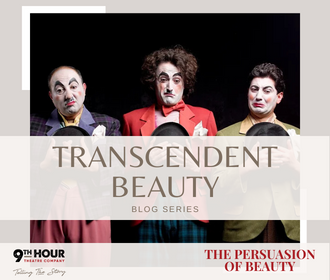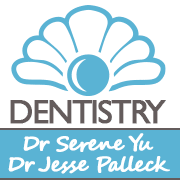An Actor Prepares Part 2
- Details
- Category: Faith & Arts
- Published: Thursday, 17 August 2023 11:24
 Why are we so drawn to beautiful things, but often repelled just as much? Explore this question and more in part 4 of a multi-part blog series by 9th Hour Theatre Company about transcendent beauty.
Why are we so drawn to beautiful things, but often repelled just as much? Explore this question and more in part 4 of a multi-part blog series by 9th Hour Theatre Company about transcendent beauty.
During 9th Hour’s 2013 season, I played the role of Sigmund Freud in 20 performances over a period of six months in Freud’s Last Session (St. Germain, 2010), a 90-minute play about a fictional encounter between Freud and C.S. Lewis. Each time I got on stage, I used certain acting skills and techniques to submerge my personality—that is, to push it below the surface so that it was no longer visible--to deceive the audience so that it would see not me but Freud interacting with C.S. Lewis. I explained this process of surface acting in my previous post.
"In taking on any role, an actor discovers that their personal experience is both an obstacle to and an aid in embodying the role of a particular character."
I want to explain here how I used deep acting techniques to not submerge but merge my personality with the role of Freud. In taking on any role, an actor discovers that their personal experience is both an obstacle to and an aid in embodying the role of a particular character. In this case, I was a healthy 58 y.o. man playing the role of an 83 y.o. man dying from cancer...but I’d never had cancer, let alone the lived experience of Sigmund Freud. To cultivate the audience’s sympathy for Freud, I focused on the deep physical pain Freud was experiencing at that age, and what effect that might have had on his intellectual and emotional life.
Surface acting is not spontaneous but contrived; it simulates emotion. During most of the play, I controlled my voice, my body, my mannerisms to create the pretense of a dying old man. Deep acting is about becoming a dying old man. I decided to incorporate an intermittent cough that erupted into a violent coughing fit several times during the play. I drew on my previous experience of bronchitis, on my emotional memory of deep phlegmatic coughing fits, to imitate the sort of violent retching you see in some individuals suffering from various respiratory-related illnesses.
"In those moments, I was un-self-consciously playing a role, like a child that steps over the line of play and becomes that ‘imaginary’ character."
In those moments of coughing fits, I forgot my ‘self,’ my personality, forgot what I had rehearsed in the same spot many times before, forgot that I had controlled those feelings in similar ways before. Instead of using techniques to simulate coughing, I let go of my thoughts and surrendered to the emotion of the moment, choking, fighting the fear of dying. To give the illusion of spontaneity, I became spontaneous--I feared dying! In those moments, I was un-self-consciously playing a role, like a child that steps over the line of play and becomes that ‘imaginary’ character. This is deep acting.
Like surface acting, deep acting also exists on a spectrum of performance. It is risky for the actor on two levels. Firstly, there is a psychological risk when an actor (as a person) and their role (as a character) merge...especially if merging triggers unresolved issues and threatens the coherence of a performer’s non-acting identity. While I chose to take a risk for deep acting only for the climactic scene of Freud’s Last Session, legendary are stories of famous ‘method’ actors who experienced serious--and sometimes prolonged--health problems after immersing themselves deeply in certain roles 24/7 for months at a time. More about 'method acting'.
"...if the audience is caught up in the ‘real’ emotion of the moment, then spontaneity can carry both actors and audience into a deeper appreciation and/or understanding of a story..."
Secondly, there is the more common risk that I experienced when using deep acting to destroy the illusion of spontaneity for the real thing, i.e., things go off-script, such as actors jumping lines or forgetting lines; or specific actions being missed or mishandled; or props breaking—such unplanned incidents can ruin ‘the moment’. However, if the audience is caught up in the ‘real’ emotion of the moment, then spontaneity can carry both actors and audience into a deeper appreciation and/or understanding of a story, one that enters their story and expands their relationship with self and others.]
For example, 9th Hour facilitated a Q&A discussion with the audience following each performance and, each time, at least one audience member would approach me privately to say that my coughing episodes reflected very accurately their own struggles with cancer, that they had never heard anyone other than themselves retch like that...to validate their pain and misery was very moving and affirming for them. Invariably, they would ask if I had cancer because they couldn’t understand how I could cough so deeply, get so red-faced, appear in such pain, if I wasn’t suffering as they had suffered. Emotional expression can facilitate social bonding around common values.
"Deep acting is perhaps immersed in ‘the truth’ of a moment and, therefore, more reliable, more trustworthy, more meaningful."
I’m not saying deep acting is better than surface acting. I’m saying spontaneity on stage, as in life, offers a different quality of experience, one that is perhaps less contrived, less deceptive, or less manipulative. Deep acting is perhaps immersed in ‘the truth’ of a moment and, therefore, more reliable, more trustworthy, more meaningful. Taking a risk through deep acting into spontaneity can open hearts to new possibilities. It can be a powerful story-telling tool, one that may help some audience members feel more alive or become more human in shaping a better world.
(This is Part 2 of a multi-part blog series about the preparation process for actors, written by 9th Hour Theatre Company. For more Blog posts relating to faith and spirituality intersecting with arts and culture, visit 9thhour.ca/blog)













